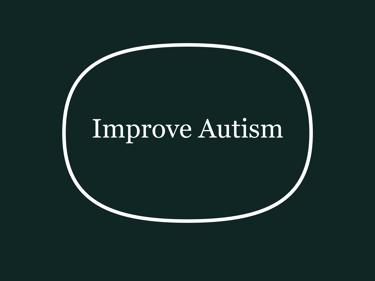The Gluten-Free/Casein-Free Diet: A Double-Blind Challenge Trial in Children with Autism
Authors:
Hyman, S.L., Stewart, P.A., Foley, J., Cain, U., Peck, R., Morris, D.D., Wang, H. and Smith, T.
This double-blind, placebo-controlled trial involved 14 children aged 3-5 years. The study consisted of three phases: a 4-6 week implementation phase where children followed the GFCF diet, a 12-week challenge phase where they received weekly snacks containing gluten, casein, both, or placebo while continuing the diet, and a 12-week follow-up maintenance phase. The researchers assessed physiologic functioning, behavioral problems, and autism symptoms using various objective and subjective measures. Below are the key findings organized by major outcomes.
Safety and Tolerability
Finding: The GFCF diet was safe and well-tolerated when implemented with nutritional counseling.
Details:
No clinically significant changes in growth parameters (e.g., height, weight) or laboratory data (e.g., complete blood count, ferritin, vitamin D levels) were observed.
Some children required supplements to address low intake of nutrients such as iron, calcium, or vitamin D, indicating that nutritional monitoring was necessary to maintain adequacy.
One child received an iron supplement, six received multivitamins, two received calcium supplements, and two received vitamin D supplements.
Nutritional Intake
Finding: With nutritional counseling, children’s diets remained adequate, with some improvements in specific nutrient intake.
Details:
At Week 6, children consumed significantly more servings of fruits compared to baseline (mean increase from 1.82 to 2.55 servings, p = .002).
Significant increases were observed in Vitamin C intake (from 663 mg to 959 mg, p = .03) and fiber intake (from 9.85 g to 12.36 g, p = .01) from baseline to Week 6.
No significant changes occurred in the consumption of other food groups (e.g., vegetables, grains, protein) or nutrients (e.g., Vitamin A, Vitamin D, calcium, iron) over the study period.
Adverse Events
Finding: No serious adverse events were reported, and less serious events were infrequent and not consistently linked to the diet or challenges.
Details:
Adverse events included behavioral deterioration (e.g., irritability), constitutional problems (e.g., abdominal discomfort, diarrhea), other medical concerns (e.g., intercurrent illnesses), and natural challenges (accidental ingestion of gluten or casein).
Seven constitutional problems (e.g., diarrhea) were reported, with five occurring in one participant who had similar symptoms before the trial.
Twenty natural challenges occurred, with five linked to increased problem behavior (resolving in 2-8 days) and three to insomnia (resolving in 1-3 days).
Eleven adverse events were deemed possibly or probably related to the diet or challenges, with nine rated as mild and two as moderate.
Physiologic Functioning (Including Gastrointestinal Symptoms)
Finding: The GFCF diet and dietary challenges had no statistically significant effects on physiologic functioning, including gastrointestinal symptoms.
Details:
Gastrointestinal symptoms were assessed indirectly via stool frequency and consistency using the Bristol Stool Scale, recorded daily by parents.
No significant changes were observed in stool characteristics following dietary challenges (gluten, casein, or both) compared to placebo.
Gastrointestinal adverse events (e.g., diarrhea, abdominal discomfort) were rare and primarily occurred in one participant with pre-existing symptoms, suggesting no consistent dietary impact.
Behavioral Problems
Finding: The diet and challenges did not significantly affect behavioral problems such as sleep, activity, or attention.
Details:
Sleep: Measured via sleep diaries, no significant changes in sleep duration or night wakings were found after dietary challenges compared to placebo.
Activity and Attention: Assessed using the Conners Abbreviated Rating Scale (completed by parents, instructors, and research assistants) and actigraphy, no significant effects were observed on inattention, overactivity, or impulsivity.
Minor variations in behavior (e.g., slight reductions in ADHD symptoms after placebo) were not statistically significant.
Autism Symptoms
Finding: The GFCF diet and dietary challenges did not significantly alter autism-related behaviors.
Details:
Autism symptoms were measured using the Ritvo-Freeman Real Life Rating Scales, which assess sensory motor behaviors, social relationships, affectual reactions, sensory responses, and language, observed 2 hours and 24 hours after challenges.
No statistically significant effects were found across these domains following gluten, casein, or combined challenges compared to placebo.
Marginally significant effects (p ≤ .10) were noted on the day of the challenge for gluten and casein on the social relationships scale and gluten on the language scale. However, individual data analysis revealed no consistent pattern:
For example, one participant (ST0323) showed slightly fewer ASD behaviors in the placebo condition, while another (ST0280) had variable responses across conditions.
Overall, the diet did not reliably improve or worsen autism symptoms.
Overall Conclusion
Finding: The study found no evidence to support the general use of the GFCF diet for children with ASD.
Details:
Despite being safe and well-tolerated with nutritional support, the GFCF diet did not demonstrate statistically significant improvements in physiologic functioning, behavioral problems, or autism symptoms.
The lack of consistent effects across group and individual data suggests that the diet does not broadly benefit children with ASD in these areas.
The small sample size (14 participants) limits generalizability, and the authors caution that further research is needed, particularly for subgroups with gastrointestinal issues.
Summary
The GFCF diet was safe and nutritionally adequate with counseling, showing minor increases in fruit, Vitamin C, and fiber intake. However, it did not significantly affect gastrointestinal symptoms, behavioral problems, or autism symptoms in this cohort of 14 children with ASD. Adverse events were minimal and not clearly tied to the diet. These findings, from a rigorous double-blind trial, do not support the widespread use of the GFCF diet for managing ASD symptoms, though its safety suggests it could be considered with proper monitoring for individual cases.
https://pubmed.ncbi.nlm.nih.gov/26343026/
doi: 10.1007/s10803-015-2564-9


